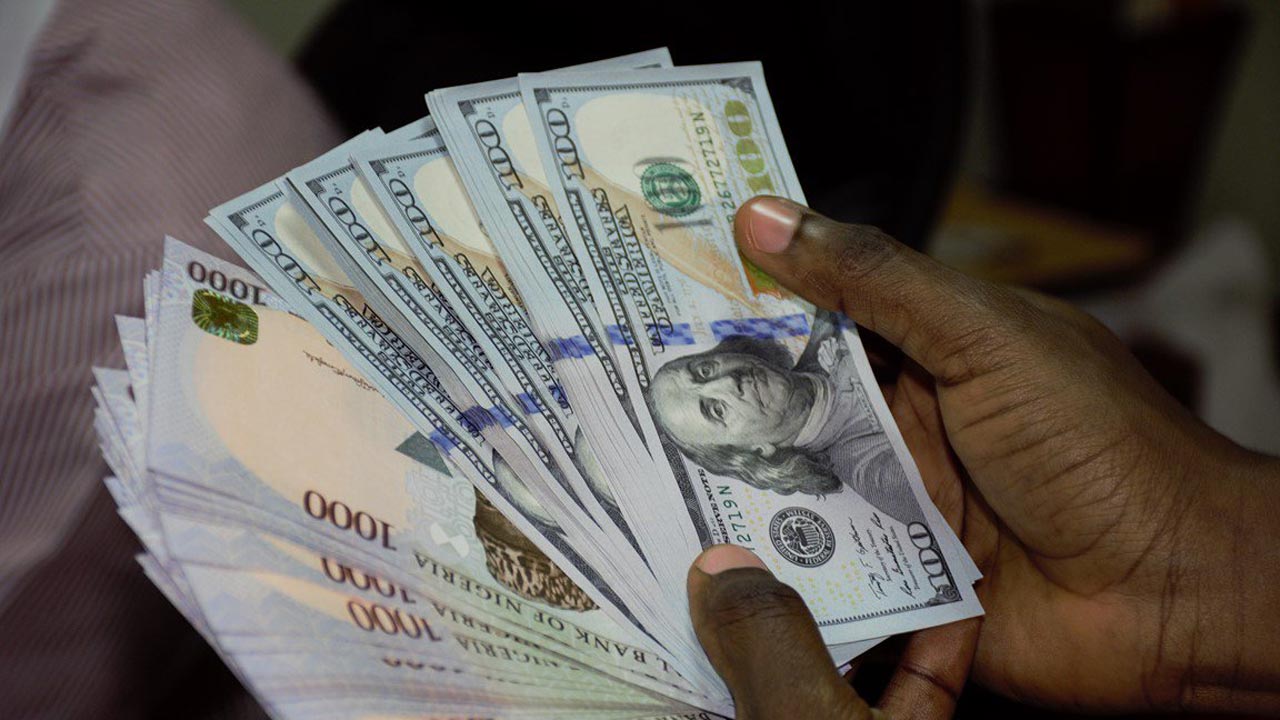The exchange rate at the black market where forex traded unofficially depreciated at N477/$1, while it also dropped at the parallel market to close at N475/$1, representing a N2 drop.
The exchange rate disparity between the parallel market and the official market is about N82.83, representing a 17.36% devaluation differential.
The Naira depreciated against the dollar at the Investors and Exporters (I&E) window at the weekend, closing at N394.17/$1. This represents a 17 kobo drop when compared to the N394/$1 that it closed on the previous trading day.
The opening indicative rate was N393.15 to a dollar on Friday, this represents a N1.01 gain when compared with the N394.16 to a dollar that was recorded on Thursday, January 21, 2021.
The N395 to a dollar was the highest rate during intra-day trading before it closed at N394.17 to a dollar. It also sold for as low as N390/$1 during intra-day trading.
Forex turnover at the Investor and Exporters (I&E) window dropped by 42.2% on Friday, January 22, 2021.
The exchange rate is still being affected by low oil prices, dollar scarcity, a backlog of forex demand, and a shaky economy that has been hit by the coronavirus pandemic.
There are fears that the exchange rate at the black market might be under pressure in the coming weeks as importers scramble for dollars to meet their demands.
Brent crude oil price is at about $55.34 per barrel as of Monday morning, as it moves towards the $60 mark, a strong sign that global demand could sustain price increases in 2021.
This appears as a boost to Nigeria as the country’s crude oil price benchmark for 2020 was $40 while it projected an oil production output of 1.8 million barrels per day.
Nigeria has a production capacity of 2.5 million barrels per day but is subject to OPEC’s crude oil production cuts, which are expected to help sustain higher oil prices.
The higher oil prices and steady production output have positively impacted Nigeria’s external reserves, rising sharply to $36.304 million according to central bank data dated January 14, 2020.
The external reserves have increased by $1.135 billion since December 31, 2020, when it closed the year at $35.3 billion.
Meanwhile, the Central Bank of Nigeria (CBN) in a new circular, read the riot act to the International Money Transfer Operators (IMTOs) as they have threatened to sanction some of them who still facilitate diaspora remittances in naira, contrary to its earlier directive that it must be in foreign currency.

 Latest4 days ago
Latest4 days ago
 Trends5 days ago
Trends5 days ago
 Business6 days ago
Business6 days ago
 Football6 days ago
Football6 days ago
 Health6 days ago
Health6 days ago
 Football6 days ago
Football6 days ago
 Featured7 days ago
Featured7 days ago
 Business6 days ago
Business6 days ago

